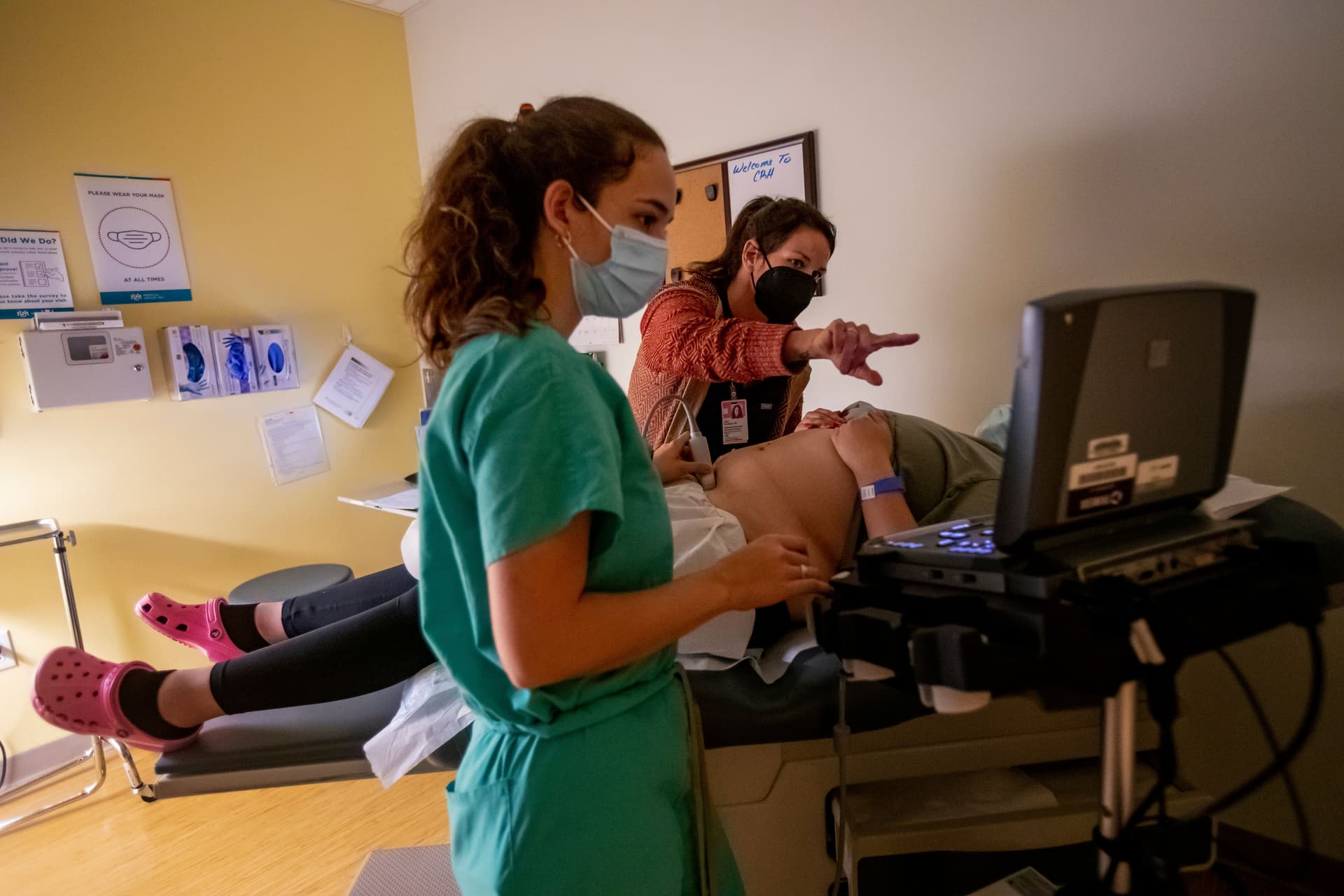Ob-gyn residency programs take hit after Dobbs
Future physicians say they’re hesitant to train or work in abortion-restricted states.

Gina Ferazzi/Getty Images
• 4 min read
Future physicians are reconsidering where they want to train—and eventually practice—in the wake of the Supreme Court’s 2022 reversal of abortion protections granted under Roe v. Wade.
Applications for medical residency programs declined in the 2022-23 cycle, compared to previous years—particularly for emergency medicine and obstetrics and gynecology (ob-gyn) specialties, according to new data from the Association of American Medical Colleges (AAMC).
A recent study published in the Journal of General Internal Medicine, meanwhile, found that eight in 10 current or future physicians surveyed after the Supreme Court’s Dobbs v. Jackson Women’s Health Organization ruling said they’d prefer to work or train in states without abortion bans or restrictions. More than 75% said they would not even apply to residency programs in abortion-restricted states.
Those findings could spell trouble for the future of ob-gyn care—and exacerbate health disparities—in abortion-restricted states, since about half of residency graduates typically go on to practice in states where they were trained.
“If we have a constrained pipeline, we’re going to have fewer and fewer trained obstetricians here in a state where we already are at a critical need for more rural obstetricians [and] gynecologists,” Jenny Higgins, a professor of obstetrics and gynecology at the University of Wisconsin (UW) Madison, told Healthcare Brew.
By the numbers
About 2% fewer medical school graduates (known as US MD seniors) applied to residency programs in the 2022–23 application cycle than in 2021–22, according to the AAMC analysis released in April. Even fewer (-3%) applied for programs in states with abortion bans.
Medical school graduates were also less likely to seek out residencies in specialties where patients are most likely to be affected by the abortion restrictions, the report found. That includes emergency medicine and obstetrics/gynecology, which saw declines of 21% and 5%, respectively.
States with complete abortion bans, meanwhile, saw the largest year-over-year decrease in ob-gyn residency applications (-10.5%).
Still, all ob-gyn residency slots were filled in 2023, according to the report, which analyzed trends in residency applications submitted to the Electronic Residency Application Service. The report’s authors added that because findings don’t paint a full picture of what is motivating medical school graduates to avoid certain states, “it will be critical for future research to explore this relationship further.”
Residency programs react
The Supreme Court’s ruling has also complicated efforts to educate future physicians in states that have outlawed or restricted abortion access.
Navigate the healthcare industry
Healthcare Brew covers pharmaceutical developments, health startups, the latest tech, and how it impacts hospitals and providers to keep administrators and providers informed.
Programs like the one at UW Madison must still train ob-gyn residents on abortion to meet Accreditation Council for Graduate Medical Education (ACGME) standards—even if that training cannot take place in their state.
ACGME officials said in 2022 that they would not cite ob-gyn residency programs in abortion-restricted states for noncompliance. However, the programs must still teach residents abortion care in clinical settings in another state. Residents can also opt out of abortion education and training for religious or moral reasons.
With almost half of accredited ob-gyn residency programs located in states with abortion restrictions, that means thousands of residents now have to travel for such training.
The University of Texas at Austin’s Dell Medical School, for example, has reportedly sent ob-gyn residents to California to be trained on abortion, while Washington University in St. Louis has partnered with facilities in Illinois to ensure residents have access to such clinical experience.
Despite the workaround, Higgins argued that sending residents out of state (including those from UW Madison) to learn about abortions could ultimately make it harder for residency programs in abortion-restricted states to recruit and retain future medical professionals.
“If I’m a medical student choosing between residencies and I want to be trained in abortion, I’m not going to move to a state like Wisconsin right now,” she said. “It’s having some profound impacts on the general field of ob-gyn and how we maintain excellence in restrictive states in those programs.”
Navigate the healthcare industry
Healthcare Brew covers pharmaceutical developments, health startups, the latest tech, and how it impacts hospitals and providers to keep administrators and providers informed.